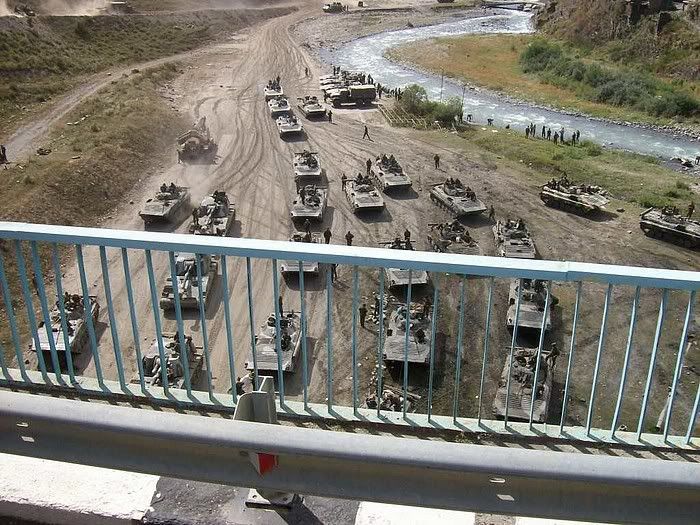
The Soviet thrust in 1998 was stopped on Highway 1 between Hope and
Kamloops. The 62nd Motor Rifle Division retreated along Highway 20
from Williams Lake while the other divisions retreated further into
the Yukon or to the Queen Charlotte Islands. Most of the Division's
heavy equipment and tanks were abandoned along Highway 20. The elements
of the division entered into cantonment in and around the tiny native
fishing village of Bella Coola.
* * *
The combat engineering unit where senior Lt. Taras V. Shevchenko
exercise command and duties was mostly tasked with the recovery of any
vehicles left behind that could be repaired and return to combat
status. While the rest of the units belonging to the 62nd MRD were
licking their wounds and waiting for orders the engineers were always
busy and on the road.
This was not unknown to the Intelligence Officers belonging to the
air branch of the Canadian Forces, the once proud RCAF, now trying to
wrestle from the Soviet forces aerial control over a vast country and
also looking for revenge. In this case the concentration of troops
offered a unique opportunity to strike at the heart of the Bear. Cdr.
MacGuire, as leader of the remains of 409 Tactical Fighter Squadron or
"Nighthawks" (now based in the former civil airport in Kamloops BC)
knew that it would not be easy. A veteran of the CF-18 with a superb
training and experience he felt that the arsenal of Air to Ground
weapons in the inventory of the Canadian Forces was not entirely suited
to this mission. The "Hornet" usually being tasked with Air Superiority
orders, the array of tools with which to strike enemy ground forces
like the 62nd MRD were limited.
Other than the ubiquitous Mk 82 and Mk 83 conventional, "dumb" bombs,
only a lonely AGM-65G "Maverick" could be put into service. Several
problems with coolant units and batteries left the rest "out of
order" to the severe dismay of the dedicated "gunners" working the
shop. No laser guided bombs could be used since there were no
illuminators in the ground or self designating pods for the planes.
Neither was the inventory complemented by any (much needed) anti radar
missiles. MacGuire decided not to consider using CRV-7 rockets
and instead use the pylons instead to their best extent: the bombs.
Throwing his arms in the air he thought aloud: "and not even a single
freakin' cluster bomb, either!".
- "Sir, the ALQ-162 needs some cards that are still in, ah, Trenton..."
said a skinny Sgt. in his twenties, "...last I heard, that is."
- "Fuck the spook, Sergeant. We're mooning 'em tonight! Fucking great, eh?".

The flight of 4 remaining CF-18 "Hornets" took off in single formation.
Cdr.("Beeker") MacGuire, leader of the pack, was sporting a classic
air to ground configuration with the three fuel tanks in place, the
"Maverick" hanging in the right wing mid pylon and compensating on the
left with a Mk 82. The full complement of 20 mm ammo and wing tipped
Sidewinders completed the combat load. The Sparrow was not considered
because of its poor record and the difficulties to keep it in
operation. This would be a pure punishment mission. Flying low, almost
nap of the Earth. "Brushing Canada" Capt. ""Mich" Michaud used to say.
He was second in Command, French Canadian and carrying 4 "Snakeyes" in
the double ejectors under his wings. Lt. ("Wrongway") Wejr and Lt.
("Subaru") Forster completed the flight with the casual Mk 82 hanging
under their beloved "Hornets".
The previous briefing was conducted in an almost serious tone. Far
from the happy days of "peacetime" and the ol' good days of Nellis and
the "Red Flag" exercises.
"Gentlemen, this will be a tactical bombardment. I will lead the
attack, looking for their main radar: looks like a P-12 "Spoon Rest",
and I will try to fuck it with the "Maverick". Intel describes it as
seating one on top of one of the mountains that surround Bella Coola.
You guys will come behind me and strike the valley. We are counting on
a dense concentration of armor coming from Highway 20 east and west
into the town. Keep it smart. Lots of SAMs and triple-A down there.
We'll go fast, strike hard and get out of there before they can say
shit-on-a-stick."

Shevchenko's unit was late getting back. After the unpleasant task of
retrieving a TMM-6 bridge layer, the prospect of getting back to
barracks and enjoy a well deserve alcoholic beverage seemed to be
fair. Then the thundering came along...
In honor of their motto, the "Nighthawks" decided to strike in the
last hours of the day. The low visibility paint and expected lower
readiness of the Red Army was their ace up the sleeve. Cdr. MacGuire,
an intelligent man with great sense of situational awareness, quickly
located the radar in the most obvious location, the higher ground. The
powering unit nearby was clearly visible in the IR spectrum and the
launching of the "Maverick" shortly ensued. A powerful explosion ripped
apart the arrays of the surveillance station, the power unit literally
blown apart by 300 pounds of high explosive. Banking left, the courageous
pilot observed a large concentration of vehicles, easily
distinguishable for their rounded turrets and some of them neatly
aligned. The Mk 82 reached the generous target, probably deleting a
dozen or so of active vehicles from the division. A more painful task
would be to replace another couple of dozen of obliterated antennas,
vision blocks, window panes and rubber tyres. The second explosion
gave the rest of the attacking party a good view of targets. A similar
fate ensued for the rest of hardware stationed on the roadsides. The
young Lieutenants did their best. Not having a better weapon to use
the effect of their attack was limited. One of the Mk 82 almost went
stray hitting an abandoned chicken coop, the flying debris ripping
several Zil trucks and setting ablaze a lonely fuel truck that burned
and flickered unmolested for the rest of the night.
Capt. Michaud came last. More ambitious he selected for their 82s AIR
(Air Inflatable Retarders) a collection of domes, tents and reinforced
bunkers nearby the river. Shortly after release of the deadly cargo a
white balloon inflated right behind the body of the bomb radically
transforming the ballistic trajectory of the ammunition and offering a
lower flight profile of attack to the proud Quebecois. Capt. Michaud
already had the entire collection of radar alerts beeping in the
cabin, so a generous supply of chaff and flares were released as well.
Meanwhile Cdr. MacGuire and Lts. Wejr and Forster were heading fast
home. Even though the main radar was destroyed and they didn't get
shot at, there was a possibility to get caught by interceptors sent
from any nearby landing strip. "Where is Mich, anyways?".
Taras watched the fireworks display in amazement. Huge craters
clearly exposed the impact of the bombs. Several vehicles destroyed to
different degree. Fuel burning here and there. A T-62M was literally
"beheaded" and the ammo inside was cooking off like popcorn. The top
of the mountain also lit by a bonfire reflecting in the remains of the
radar grill that once was dominating the valley.
Suddenly he heard an incoming roar from the skies follow by a "swish"
and and big fireball in the sky. Like a grand finale. The entire sky
lit at once and then covered with white smoke drifting in the cold
night at an elegant almost reverent pace.
Hours later the scene was devastating. Several wrecks still burning,
under that sinister light a line of dead bodies was improvised.
Several wounded soldiers were evacuated to the town. The mood was
somber. "Out of nowhere and pants down! Where the fuck are the Migs?
Where was the air defense? Sleeping? Too late!"
Shevchenko felt lucky at least. He turned his head and look at the big
cabin of the bridge layer truck. The pair of small headlights, one of
them burnt out and frontal arrangement reminded him of some comical
character that appeared to him winking like an one eyed accomplice.
The reflection of the burning spectacle in the large windshield
reminded him of the catastrophe neatly averted.
- "Jesus Christ!"
One of his weary engineers looked around in an exaggerated manner and
whispered loudly, "hey, don't let the
Zampolits hear you say
that!"
(Written by Javier Mainar)
This message was last edited by the GM at 00:04, Sat 08 Sept 2012.












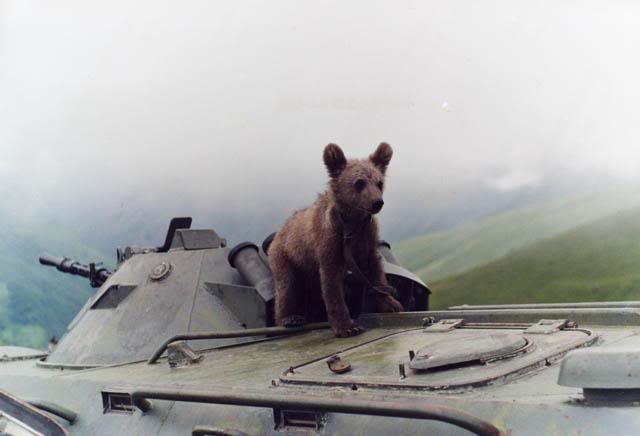





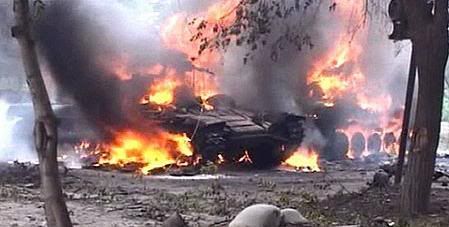





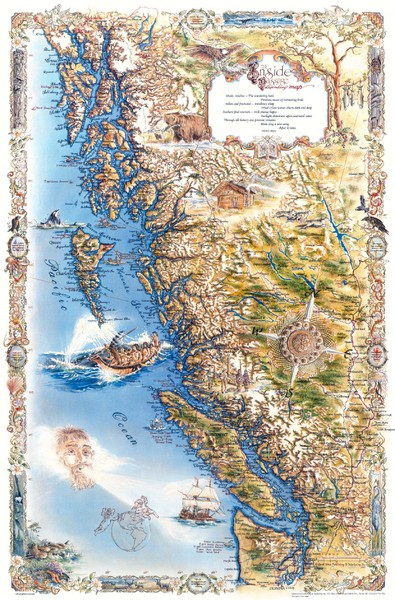


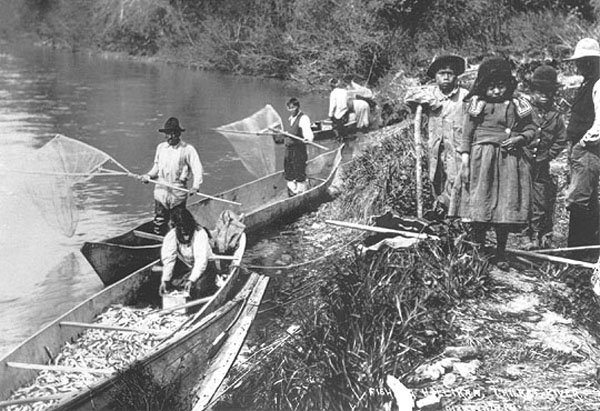








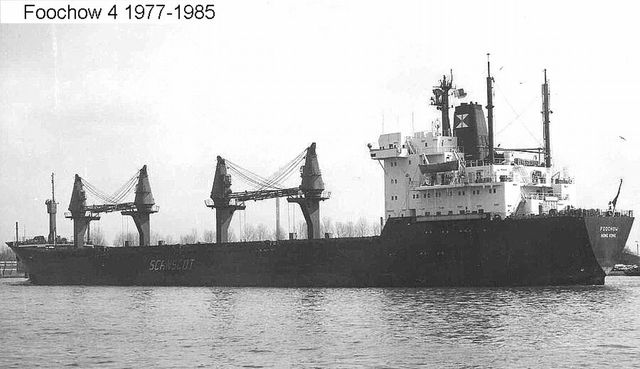



.jpg)


























